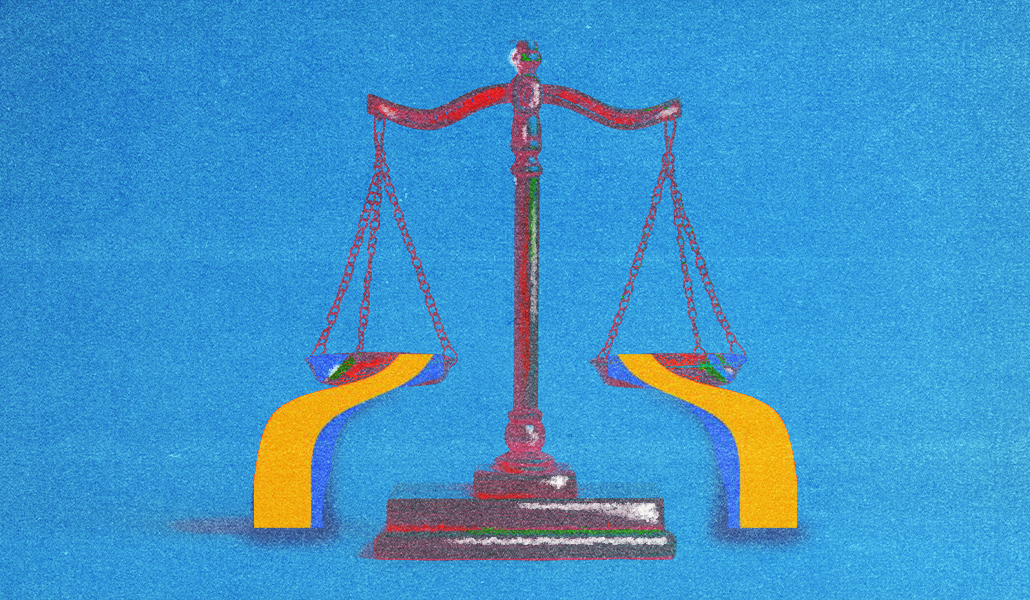With the antitrust trial against Google’s alleged ad monopoly set to wrap by year’s end, the industry buzz has shifted to the fallout. Will Google’s ad empire get dismantled? And if so, will it be a clean break or just a few loose threads? Maybe Google will just be slapped with a hefty fine.
For publishers, the stakes are high — this hits close to home. Behind closed doors, some are nervously biting their nails, worried that lawmakers might actually follow through on breaking up the tech giant.
Make no mistake — they’re hungry for change. After nearly two decades of living under Google’s thumb, they’re savoring the sight of the tech giant sweating under the legal microscope.
But a breakup? That’s flirting with disaster — for them, anyway.
Here’s why: If the Department of Justice proves Google built an illegal ad monopoly and the courts back a breakup of the sell-side of its business, publishers could take a major hit. They’re worried the programmatic ad dollars they depend on might dry up — a price they’re not willing to pay.
“As long as Google has the buy-side of its ads business nothing is going to change — and that’s the part of the business they’ll never give up,” said the head of digital at a publisher who spoke on condition of anonymity.
To understand why publishers are sweating over what could be spun off, you need to know how Google’s ad empire operates. Google controls the largest pool of online ad dollars, mainly through its DV360 platform. For publishers to tap into that money, they have to sell ads in Google’s AdX marketplace, which also requires using Google’s ad server. If Google is forced to cut both, publishers might lose access to those dollars, as DV360 will likely stay with whatever part of Google the company holds onto.
News Corp got a wake-up call on this back in 2017. Ad execs there decided to test the waters by switching ad servers, which cut them off from the AdX programmatic marketplace — and the advertisers using DV360 to buy from it. The price tag for that experiment? A hefty $9 million in lost ad revenue.
When this bombshell came up in the trial’s first week, it only confirmed what many publishers had been quietly fearing all along.
“Every publisher I’ve spoken to about this case has voiced some concern to me about the outcome of the trial being spinning that Google sells off the sell-side of its ads business,” said an ad tech exec, who exchanged anonymity for candor.
One publisher didn’t mince words, going even further: “The probability that Google’s ad business gets dismantled as a result of the trial … I feel it’s low. It’s extremely difficult, but when it comes to the outcome of things, it’s something that we’d have to figure out,” they said.
Because let’s face it — disruption is inevitable. The real wildcard for publishers isn’t Google’s fate — it’s how much the rest of the industry gets burned in the process.
“A result that fails to spin out DV360 misses the point,” said David Kohl, CEO of Symitri (the ad exchange formerly owned by publisher trade organization DCN known as TRUSTX). “The entire ad tech business must be made independent if we’re to see any material change for open-web publishers. An independent SSP and ad server is only a partial solve.”
What these publishers are saying isn’t unique — it’s a common refrain across the industry. But their reluctance to break up Google’s ad business, despite being the ones most hurt by it, speaks volumes. It’s as if they’re in a co-dependent bind — what they want to escape is the very thing they can’t live without. And the silence from so many only highlights just how conflicted they really are.
Ironically, the most vocal voice on the issue has come from the other side of the market — The Trade Desk’s CEO Jeff Green. Speaking on stage at Exchangewire’s ATS conference earlier this month, he mused over the complexity of unraveling Google’s sell-side, calling it “extremely difficult because it’s so integrated.”
But if it were to happen, in Green’s view, DV360 would simply pivot to monetizing Google’s search and YouTube businesses, which, in the end, might actually serve Google’s interests just fine.
Adding fuel to this theory is the fact that Google has already dangled the idea of selling the AdX marketplace, but notably not DV360, in an effort to appease EU antitrust regulators.
“I have to confess, I don’t think a breakup [of Google] will be the outcome of this antitrust trial and instead believe it will get a fine or have some sort of behavioral remedy put on it,” said the head of digital at a publisher in Europe, who spoke to Digiday on condition of anonymity as they were not authorized to comment on the matter. “Otherwise, Google is going to fight the threat of a breakup that undermines its own monopoly from here to eternity.”
Of course, all this fretting could be for nothing.
The trial’s outcome might take an entirely different turn — maybe a full-scale breakup instead of the piecemeal split the DOJ has floated. Or perhaps there’s no breakup at all. Lawmakers might settle for fining Google and placing guardrails around its ad business. Sure, it wouldn’t be the sweeping remedy many ad execs are calling for, but it might be the only way regulators can rein in the giant without a pyrrhic victory in the end.
“That’s the problem here. Google’s services evolved to be what they are in large part due to the market forces that they were formed in and you can’t change that, yeah, without causing some kind of disruption to a market,” said Gartner’s distinguished vp analyst Andrew Frank.

